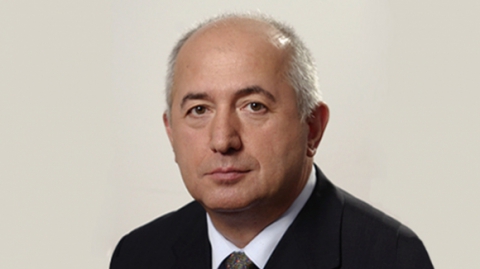
No Plan to Solve Deadlock Over Occupied Georgian Regions
Publication: Eurasia Daily Monitor Volume: 9 Issue: 227
By:

On December 6, speaking at the conference, “Perspectives of Georgian-Abkhaz and Georgian-Ossetian relations under the new government,” held in Tbilisi, Georgia’s Minister of Reintegration Paata Zakareishvili stated that the country should expect first concrete results from its engagement with Abkhazian and Ossetian separatists within ten years (www.apsny.ge, December 6).
Minister Zakareishvili’s statement reveals the fact that the new Georgian government does not have any immediate and effective policy toward the breakaway regions. Even more so, Zakareishvili’s statements reveal the lack of a realistic understanding within the government about the facts and processes on the ground, offering unrealistic, even naïve policy prescriptions. As Zakareishvili said, Abkhazians and Ossetians do not know what they want. He suggested that Georgia should switch to the politics of “silence,” by which he meant that the country should avoid becoming an object of criticism. Only after this, Georgia should start taking steps and let the world see that the country is active in trying to peacefully resolve the conflicts. As he elaborated, Georgia should maintain direct channels of communication, in other words personal contacts, with Abkhazians and Ossetians. He suggested following two policy lines: first, to continue the politics of non-recognition and explain it to the residents of the breakaway regions. Second, to engage the West more in the conflict resolution process (www.apsny.ge, December 6).
Minister Zakareishvili’s, and thus the Georgian government’s, conflict resolution beliefs and policy prescriptions seem outright naïve and out of touch on every count, even if one takes only a brief look at the real situation in the separatist regions.
Moscow’s grip over Abkhazia and South Ossetia seems complete and unchallenged. Russia has military bases in both regions, with thousands of troops stationed there. Russia also recently announced plans to build a military town for 400 Russian military servicemen in South Ossetia (www.regnum.ru, November 21), a fact that once again emphasizes Moscow’s full control of the breakaway regions.
Additionally, both of these impoverished regions’ economies are almost entirely dependent on Moscow. Both regions use the Russian ruble as a currency. Both regions heavily rely on Russia for financial assistance and trade. Moreover, it is highly unlikely that Moscow will ever let the occupied regions’ economic dependence on Russia ease up. Therefore, the Georgian government’s belief that it will reintegrate separatist regions via Georgia’s economic development seems groundless (www.regnum.ru, November 22).
Additionally, the overwhelming majority of South Ossetia’s and Abkhazia’s populations hold Russian citizenship. Russian is the official language, along with local Ossetian and Abkhaz, in both regions. Finally, Russia’s cultural influence in both regions is pervasive. Based on all of the above facts, Russian occupation and de-facto annexation of the two regions appears to be complete.
Separatists also do indeed seem quite sure about what they want, contrary to Minister Zakareishvvili’s claim otherwise. Since the “Georgian Dream”-led coalition government voiced its desire to engage Abkhazians and Ossetians, Abkhazia’s separatist regime several times reiterated that the only subject that they were willing to discuss with Tbilisi was the subject of Abkhazia’s recognition as an “independent” state by Georgia (www.pirweli.com.ge, October 23; November 4; also see EDM, November 13). South Ossetia’s separatist regime’s international engagements in October and November to expand its international recognition also left no doubts about the separatists’ desire (www.regnum.ru, October 2, 3, 8, 24; November 11).
Russia itself, at the highest levels declared several times that the political status of Abkhazia and South Ossetia was nonnegotiable (www.newgeorgia.ru, www.regnum.ru, October 9; www.kommersant.ru, November 29; www.civil.ge, December 5; also see, EDM, November 13, December 4).
Increasing the West’s involvement in the conflict resolution process is highly desirable, but also highly unlikely. So far, the European Union Monitoring Mission (EUMM) in Georgia (stationed around the South Ossetian conflict zone) as well as the not very successful Russian-Georgian Geneva talks, in which the United States, the European Union and the Organization for Security and Cooperation in Europe (OSCE) are involved, remain the two venues where the West is engaged. The West has been weary to increase its active involvement, and Russia has been vociferously against any increase of Western involvement.
The situation is deadlocked. Moreover, it is becoming clear the new Georgian government does not have any immediate, effective or realistic plan and policy to tackle the problems of separatist regions. This is not necessarily due to the lack of creativity on the part of the current Georgian government, or of the previous government (which also did not have a successful conflict resolution policy), or of the Georgian side in general. It is the nature of the problem. More precisely, the deadlock is largely imposed by Russia, which makes the resolution of these conflicts almost impossible.
There are two scenarios, however, which can change the status quo and reintegrate the regions with Georgia. The first is dependent on the political will of the Western world to apply concentrated and extended political and economic pressure on Russia to end the occupation of Abkhazia and South Ossetia. At this point, this seems unrealistic. The second option would be the collapse of Russia’s current authoritarian regime and ascend to power of a new regime, which will be willing to cease the occupation of Abkhazia and South Ossetia. So far, Russia’s current regime stands. Therefore, the occupation continues, and the resolution of the conflicts seems a very distant and dim prospect.




